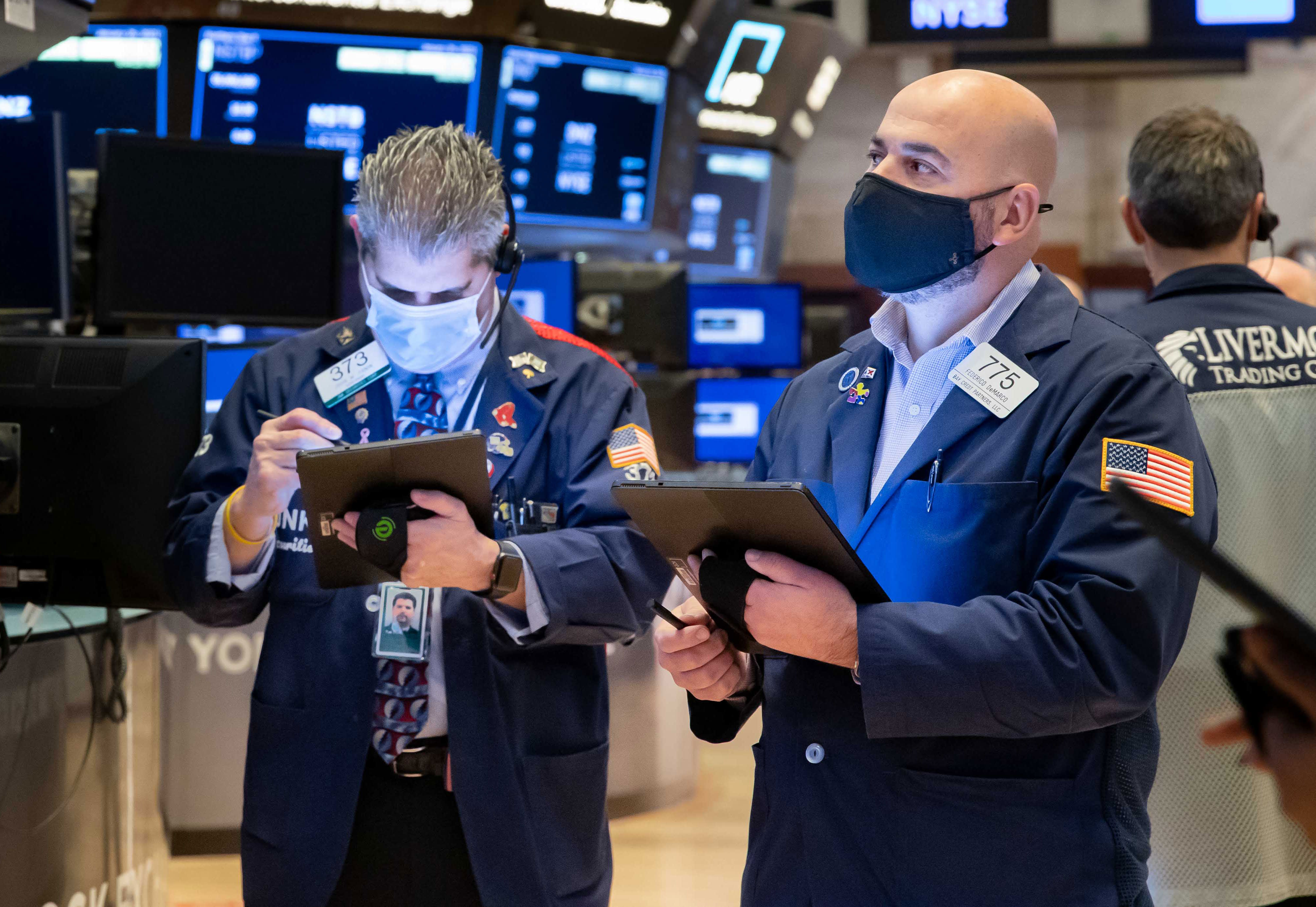Stocks erase earlier gains and turn lower amid weakness in Big Tech

U.S. stocks wiped out earlier gains and traded in the red on Wednesday as investors rotated out of major technology stocks.
The Dow Jones Industrial Average erased a 130-point gain to trade 50 points lower. The S&P 500 dipped 0.1 and the Nasdaq Composite fell 0.5%, after both hit all-time highs earlier in the session. Amazon, Apple, Alphabet, Microsoft and Netflix all slid into negative territory.
The major averages rallied to record levels as investors cheered a batch of solid corporate earnings as well as data showing subdued inflation.
The U.S. consumer price index rose 0.3% in January, matching expectations from economists polled by Dow Jones. The core consumer price index, which excludes volatile food and energy costs, was unchanged last month.
“One of the concerns is that inflation will start to take hold due to so much monetary and fiscal stimulus, which will cause the Treasury and the Fed to intervene,” said Keith Buchanan, senior portfolio manager at Globalt. “Any news indicates that inflation will be lower for longer will delay that potential reaction to pull some of the stimulus back.”
Coca-Cola rose 0.4% after the company topped Wall Street’s estimates for its fourth-quarter earnings with cost-cutting efforts. Under Armour jumped more than 7% after reporting a surprise profit for the holiday quarter as sales were boosted by strong digital growth.
Twitter popped about 9% after the social media company beat Wall Street’s earnings and revenue expectations.
Traders will also be watching closely Federal Reserve Chairman Jerome Powell’s speech before The Economic Club of New York at 2:00 p.m. ET.
On Tuesday, the 30-stock Dow and the S&P 500 fell slightly, snapping a six-day winning streak.
Still, Wall Street is having a strong February with the S&P 500 up more than 5% so far. Investors remained optimistic about additional Covid-19 stimulus. House Democrats unveiled the details of a relief proposal that included $1,400 direct checks with faster phase-outs than previous bills.
“The virus is continuing to mutate, vaccines are taking longer than expected to distribute and achieving herd immunity seems as if it will take a lot longer as a result,” said Chris Zaccarelli, chief investment officer for Independent Advisor Alliance. “On the bright side, massive fiscal stimulus and an extremely accommodative Federal Reserve should keep equities moving higher while we wait for those setbacks to be resolved.”
Subscribe to CNBC PRO for exclusive insights and analysis, and live business day programming from around the world.




